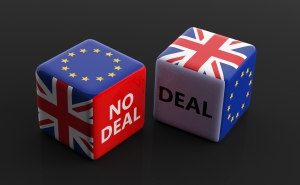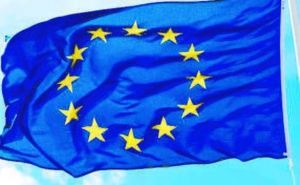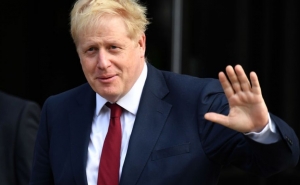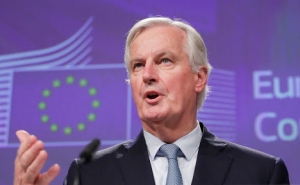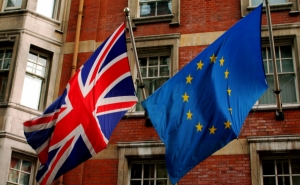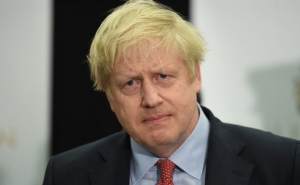Separation rather than a "Divorce": Compression of the EU and Shrinking of the UK
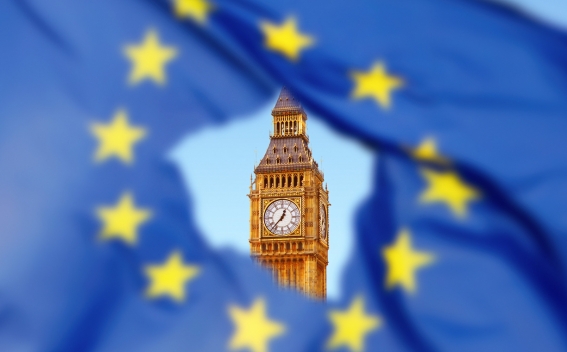
Syuzanna Vasilyan, Adjunct Professor,
Universite Libre de Bruxelles, Brussels, Belgium
‘It’s not an amicable divorce but it was not exactly tight affair anyway.’
Jean Claude Juncker, President of the European Commission
In the past year many events on BREXIT took place in Brussels, which had become the buzzword later to be juxtaposed with BREMAIN. If there is too much "marketing" – when you reiterate it so many times even to eventually assert support towards the opposite the former becomes a self-fulfilling prophecy. It’s a rule of a thumb. The BREXIT campaign argued "Leave: Great Britain is Great". This was quite unexpected, despite the familiar Euroscepticism for which the EU has been notorious. Since the departure of Greenland in 1985 – also on the basis of a referendum – this may be a second case, albeit qualitatively a different one. Otherwise, the EU has been solely complaining of enlargement fatigue but not of compression shock of this sort. The Union ‘feels’ disunited, with Great Britain in danger of becoming ‘Small’, with Scotland willing to Remain in the EU, thus, exit from the UK, and Northern Ireland - to unite with Ireland.
In a divorce none of the sides is better off – either financially or psychologically. Third parties, i.e. lawyers win – both in terms of securing employment and fat checks for as long as the process can be dragged. The arrangements will have to be renegotiated, in terms of transaction costs (time and energy consumed) everyone will lose and the EU, rather, Europe hardly needed that now. A new Treaty may have to be drafted and ratified – like with every enlargement implying modification of the voting weight in the Council and the European Council, number of seats in the European Parliament, number of judges in the European Court of Justice (ECJ), etc. The UK may have to incur more costs by ending up with a voice but no vote. True, an EU-European Economic Area or European Free Trade Area type of an arrangement or a bilateral one, such as with Switzerland, can be negotiated. The difference will not be immense though, it will just take more time and energy – the reverse of what the BREXIT campaign intended to achieve.
For the "children" moving between two "parents", i.e. citizens – freedom of movement of people - other agreements have to be negotiated after years of living under a common roof. The bureaucratic work will be augmented not lessened, English will not be a lingua franca in Brussels any more (this should be especially worrying for the Eastern European countries, the officials of which are largely English rather than French speaking).
The UK was never fully committed to the "marriage" – being out of the two most important frameworks – the Schengen agreement and the Euro as a single currency. When much is not given, there is not much to take back either. The contradiction is that a "civil marriage" in the case of belonging to the single market or "cohabitation" as for Schengen and the euro, makes it less costly to retreat but it also conceived as easier since the negative technical and psychological effects in addition to the transaction costs are depreciated.
EU’s added value is the peace brought to the continent through de-militarization of the war-stricken Germany. The British applications vetoed by General de Gaulle were pushed by the US to counter-balance French hegemony on the European continent, and were not based on a sincere "love affair", maybe that is why they were doomed to fail. The material interest was not there either: the trade was largely conducted with the Commonwealth, it was only after accession that the flow was twisted via the channel. The British rebate with Margaret Thatcher demanding the money back was also due to the reluctance to contribute to the common "family" budget: the UK was industrial, France was agricultural, thereby due to benefit most from the controversial Common Agricultural Policy. The British entry to the EU was not based on a referendum, like the potential accessions of Norway, which were rejected twice. The justifications were different though – not just sovereignty based but also "autarky" – Norway possessed oil. It was also protectionist in terms of its fisheries, just like Iceland, which backtracked recently from the EU membership deal. But even then whereas Norway voluntarily harmonizes the bulk of its legislation with that of the EU – for the sake of ease in trade - the UK may be obliged do the same.
Like in all referenda – what Aristotle and Plato warned to beware of - in a democracy – you deal with a non-rational demos. Yet, non-rationality or irrationality is as viable as rationality - subjectively defined. In rational choice theory rationality is not perfect either, it is "bound" due to the limited amount of information a human brain can acquire, process and digest. Moreover, the emotions, opinions, preferences even of a marginal majority should be considered, while those are fed by concerns over sovereignty, fears of immigration, economic insecurity, etc. Sovereignty is the remit of self-governance, it is not identical to independence, which cannot be ensured anyways; there will just be a shift in the direction(s) of dependence. In the matters of the labor market there is a hierarchy: any EU employer must first search in the national market, then the European one and only after those two turn out to be futile – beyond. Economic difficulties awash by the crisis may be more aggravated with the receding trade "tide" as once taxation and duty-walls reemerge, FDI will decline, non-tariff barriers – with more liberal British standards taking over the more stringent socio-liberal continental ones will further hamper trade.
The reverse arguments have been that the democratic deficit of the EU institutions crafted by insular elite has made the decision-making detached from the national capitals and the citizen. The officials in the Brussels institutions – Council, European Council (indirectly), Parliament (directly), are the elected or the appointed ones of the ECJ originate from the member-states, and partially the European External Action Service. It is only the European Commission that stands out as an unelected body whereby the Commissioners are proposed indirectly by the elected member-state officials. The EU regulations and directives – the binding categories of EU legislation, have, however, been more humane than the British liberal economy could warrant. Maybe specific private companies stand to benefit from BREXIT. As for immigration, ironically, as a former colony, Britain is already a demographically multicultural mixture – much more than other countries on the European continent. The anti-immigration positions were targeting the Polish, Romanians, Italians and Greeks, who allegedly take the jobs of the British not the Syrian or other refugees. The euro has hit the strong economies, e.g. the Dutch, at the point of entry into force but it has also dragged out the sinking ones – through economic "evening" narrowly coined as "correcting" through "cohesion". With the demographic crisis in Europe – in terms of low birth rates to sustain the elderly population and a prosperous economy, immigration is impending. The trend now maybe shifted more to the Commonwealth and/or former colonies, which have been the prime countries of origin, but will not disappear. In any case, the eventual resolution will be in the form of separation rather than a divorce.
The British referendum did not render an over-night change of status and affairs, it was not a revolution. However, it may lead to devolution with Scotland’s "Remain" and Northern Ireland’s "Unification" preferences. Once such democratic waves are put into sway though, it becomes hard if not impossible to question the validity of referenda, especially in the east of Europe, e.g. the cases of Artsakh, South Ossetia (seeking to unify with North Ossetia in future) and Abkhazia (wishing a confederal union with Georgia in the past). The zero-tolerance of the Western European states to reshuffling of borders on the European continent – so as not to instigate similar calls in Scotland, Catalonia, the Basque country, etc. has been losing ground. The solidity of codified borders was shattered by the BREXIT, albeit for a different rationale of subjecting Britain’s membership in the EU to a referendum. With the ‘right of people to self-determination’ being revisited, the calls and attempts of restraining the will of people to carve their destiny will be simply invalid.
The EU has propagated European values and norms drawing on the universal ones and further reinforcing those. A normative precedent in the face of BREXIT – even if the patterns of voluntary membership in a supranational organization, like the EU, may be argued to differ non-favorably, though, from the ones imposed by a totalitarian order, such as the Soviet Union - has loomed large. As reinstated in the speeches of EU high officials, even if disapproved and regretted, the decision and choice of the British people will be respected. With political recognition being a contingency, the matter is equally internal and external in terms of policy ramifications. Thus, both common sense and moral imperative would presuppose taking a similar stance towards others on the European continent. After all, whether to live together, how much to contribute to the family, separate or divorce is for the people to determine.
Other materials on this subject
- The European Union Has Decided to Abandon Russian Coal In the Summer Many countries have joined these sanctions, even if this necessarily implies economic costs for ourselves," he noted.
- Germany Faces Steep Recession if Russian Oil and Gas Halted, Bank Lobby Says "The situation would be even worse if imports or supplies of Russian oil and natural gas were to be halted. A significant recession in Germany would then be virtually unavoidable," Sewing told journalists.
- EU Leaders Agree on Joint Gas Purchases Last year, the European Commission proposed to the EU countries a system of joint purchases of strategic gas reserves as a way to provide a buffer against possible supply disruptions. Fears of supply disruptions...
- European Union Launches “Team Europe” Package to Support Partner Countries with More than €20 Billion: Reuters Most of the money is being reallocated from other, less urgent EU foreign aid schemes in the EU’s common budget, but Borrell said the European Investment Bank, the European Bank for Reconstruction and...
- The Guardian: EU Leaders Clash Over Economic Response to Coronavirus Crisis Meeting via a video link, the EU’s 27 leaders papered over deep divisions by agreeing that another fortnight was needed to discuss ambitious economic recovery plans. After a testy debate over "coronabonds",...
Other materials on this subject
- UK and Japan Agree Historic Free Trade Agreement But it is unclear whether the UK has won an export quota to match the one it had as a member of the EU.
- Boris Johnson Tells EU that Free Trade Deal Must be Done by 15 October In that case, Britain would be ready to find sensible accommodation with the bloc on practical issues such as flights, lorry transport or scientific cooperation, according to the excerpts.
- EU Announced Diplomatic Mission In London The EU External Action shortly after the Brexit issued a statement and announced that the EU’s diplomatic mission in London will be carried out by the EU delegation led by Ambassador diplomat Joao Vale...
- UK PM Johnson Plans 'Respectful' Brexit Celebration After three years of wrangling over whether Brexit should go ahead and how best to do it, Johnson has agreed a deal with the EU that will see Britain continue to abide by the bloc’s rules until the end...
- EU Chiefs Sign Brexit Deal ahead of Parliamentary Vote Then, on Thursday next week, diplomats from the EU member states will approve the deal in writing, ensuring Britain’s orderly departure at midnight on January 31.
-
 17:08
17:08The regular session of the Anti-corruption Policy Council takes place in Jermuk
-
 15:05
15:05The Prime Minister sends congratulatory messages to the supreme leader of Iran and the President of Iran
-
 11:11
11:11Armenia sends earthquake aid to Turkey
-
 10:43
10:43Commemoration of the Pontiff St. Sahak Partev
-
 09:16
09:16Some roads are closed and difficult to pass in Armenia
-
 19:55
19:55Phone conversation of the Foreign Minister of Armenia with the U.S. Assistant Secretary of State for European and Eurasian Affairs
-
 18:30
18:30Prime Minister Pashinyan and President Khachaturyan meet
-
 18:20
18:20Ararat Mirzoyan with Co-Chairman of the OSCE Minsk Group of France Brice Roquefeuil
-
 17:01
17:01Humans could land on Mars within 10 years, Musk predicts
-
 16:45
16:45France, US urge 'immediate' end to Nagorno Karabakh blockade
-
 16:01
16:01Blockaded Nagorno Karabakh launches fundraiser to support quake-hit Syria
-
 15:59
15:59Earthquake death toll in Turkey rises to 18,342
-
 15:43
15:43Ararat Mirzoyan Held a Telephone Conversation with Sergey Lavrov
-
 15:06
15:06French president rules out fighter jet supplies to Ukraine in near future
-
 14:47
14:475 Day Weather Forecast in Armenia
-
 14:44
14:44President Vahagn Khachaturyan wrote a note in the book of condolences opened in the Embassy of Syria in Armenia
-
 14:20
14:20Azerbaijan’s provocations impede establishment of peace and stability – Armenian FM tells Russian Co-Chair of OSCE MG
-
 12:57
12:57France representation to OSCE: Paris calls on Azerbaijan to restore freedom of movement through Lachin corridor
-
 11:40
11:40Command of Kosovo forces highly appreciated preparation of Armenian peacekeepers
-
 10:16
10:16The United States withdrew from sanctions against Syria for six months the provision of assistance after the earthquake
day
week
month
Humidity: %
Wind: km/h


